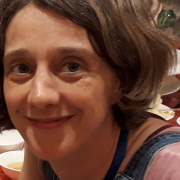
Copyright : Laboratoire LEMAR- 2018
Sabine Roussel
Européen
FEAMP
Europe + France (MEEM)
Start Date
04/04/2025
End Date
04/04/2025

Since 2004, innovation work on abalone farming has enabled the launch of a new aquaculture sector in France, notably thanks to the support of regional and European research programmes. Nevertheless, abalone has proved to be a delicate and sensitive animal, complicated and time-consuming to raise, but this product has nevertheless found its place on the market, at a very high price. This project comes at a critical time for the development and sustainability of the industry in France. Indeed, it takes between 3 and 4 years before a farmed abalone of the species Haliotis tuberculata, endemic to Europe, can be sold. The industry is having difficulty setting up because of the limited profitability associated with this very long rearing period. However, for the past 15 years, several selection programmes based on collaboration between research laboratories and industry have been set up in countries producing abalone of other species in Australia and South Africa, resulting in a 50% increase in growth rate. In France, companies do not currently have the tools to set up a selection programme, as has been done for other aquaculture species or land mammals. Based on the experience gained with other aquaculture species, the GenOrmeau project will use the new SNP (Single Nucleotid Polymorphism) genomic markers to develop a genetic selection method to improve the competitiveness of the farmed abalone sector in France. The techniques and selection methods implemented will be compatible with sustainable breeding specifications, such as organic breeding. Indeed, according to Directive 90/220/EEC, genetic selection is excluded from technologies considered as genetic manipulation. To achieve this objective, four phases will be carried out jointly: 1- identification of phenotypic traits associated with growth and survival in farming 2- study of the heritability of the various criteria of interest and their genetic correlations 3- implementation of a selection strategy adapted to the technical and financial capacity of the French halioticulture sector (practical, ethical and financial aspects) in line with the size of its market and its turnover 4- communication with the halioticulture, oyster farming and general public sectors. Several partners will be involved: a French company Haliotis in collaboration with other SMEs, researchers with expertise in the field of quantitative genetics and abalone stress assessment (UBO and Ifremer, associated within the UMR LEMAR), as well as SYSAAF, a centre specialising in advice and technical support for 42 French poultry and aquaculture breeding companies.
Sébastien LACHAMBRE (France Haliotis)
Sylvain HUCHETTE (France Haliotis)
Pierrick HAFFRAY (SYSAAF)
Florian ENEZ (SYSAAF)
Romain MORVEZEN (SYSAAF)
Karim RIGALMA (ESIAB)
Rob DAY (Université de Melbourne, Biosciences Department)
Ewan HARNEY (Ifremer)

 NANOPLASTICS
Scroll to top
NANOPLASTICS
Scroll to top